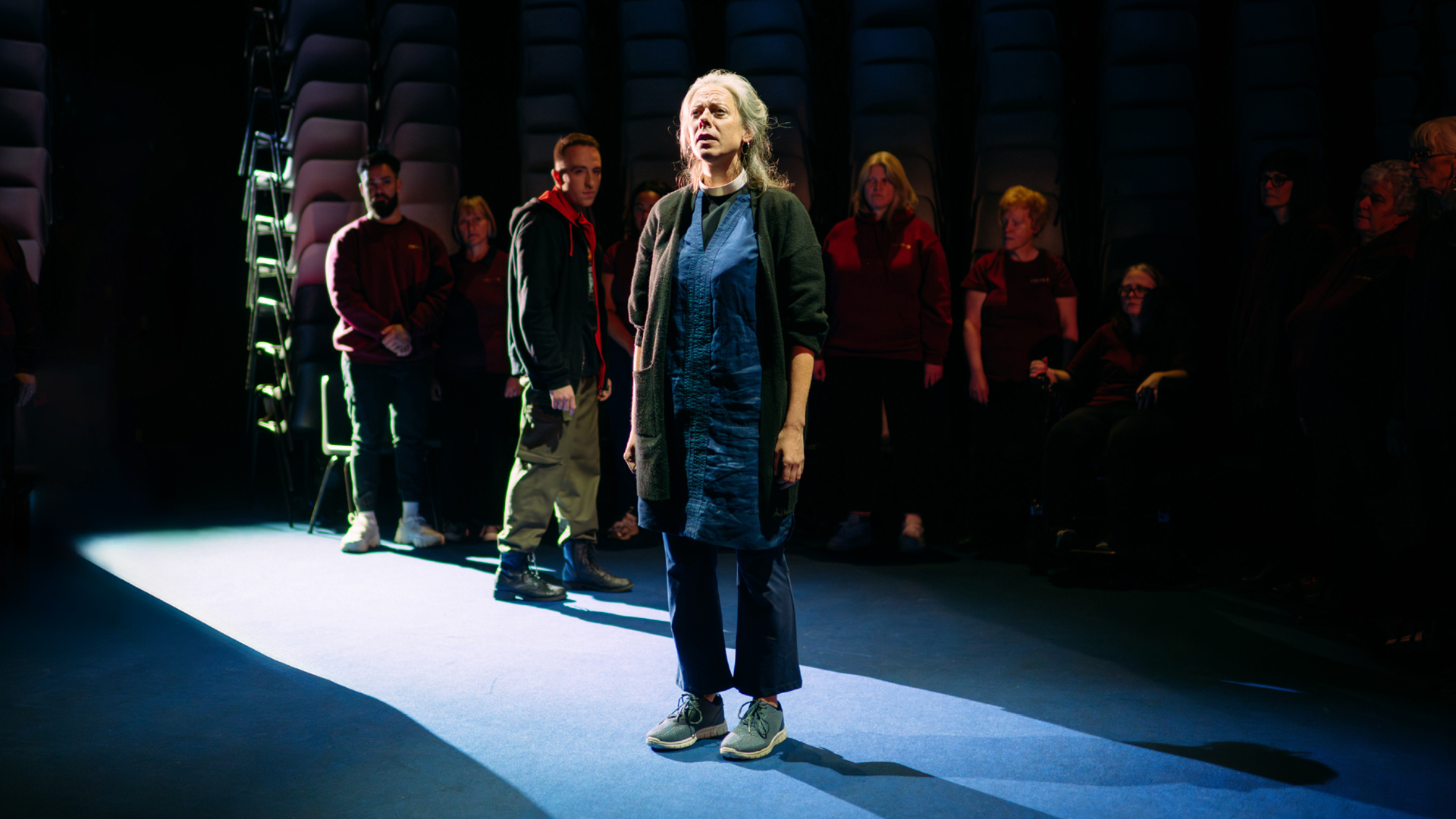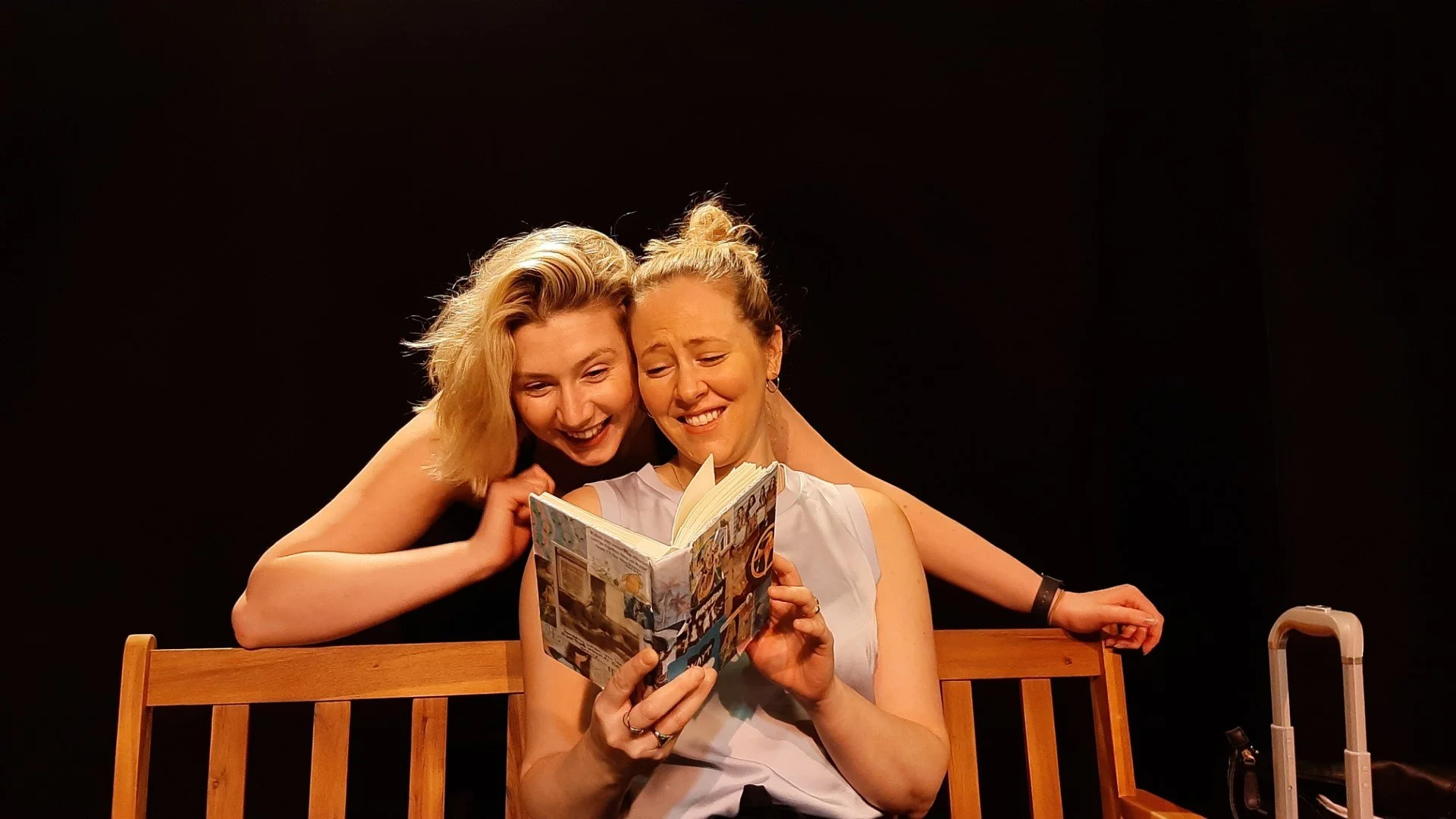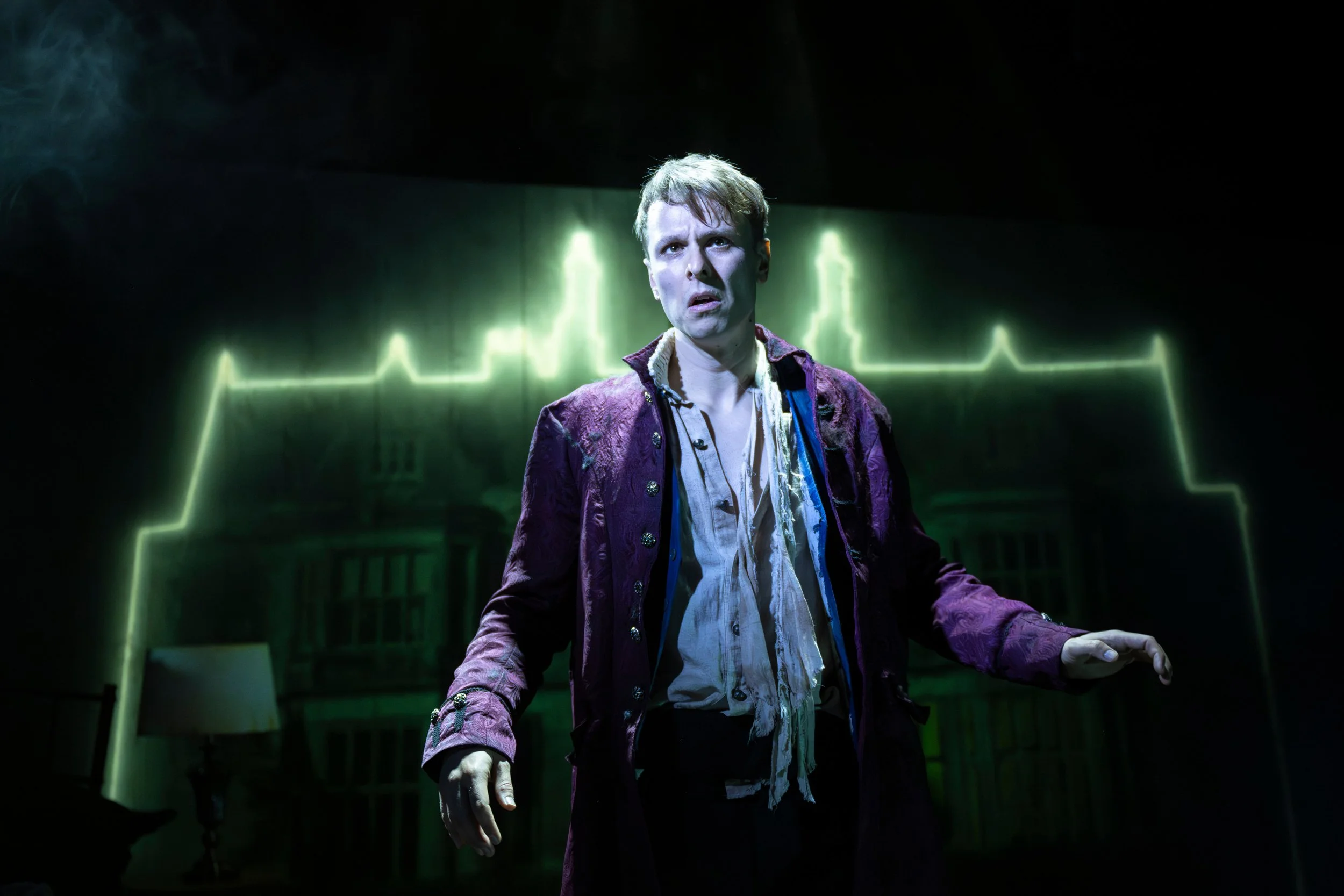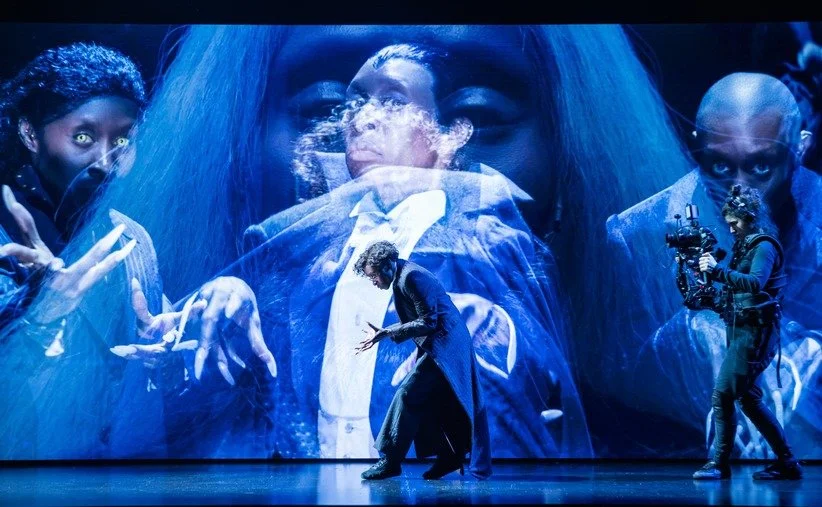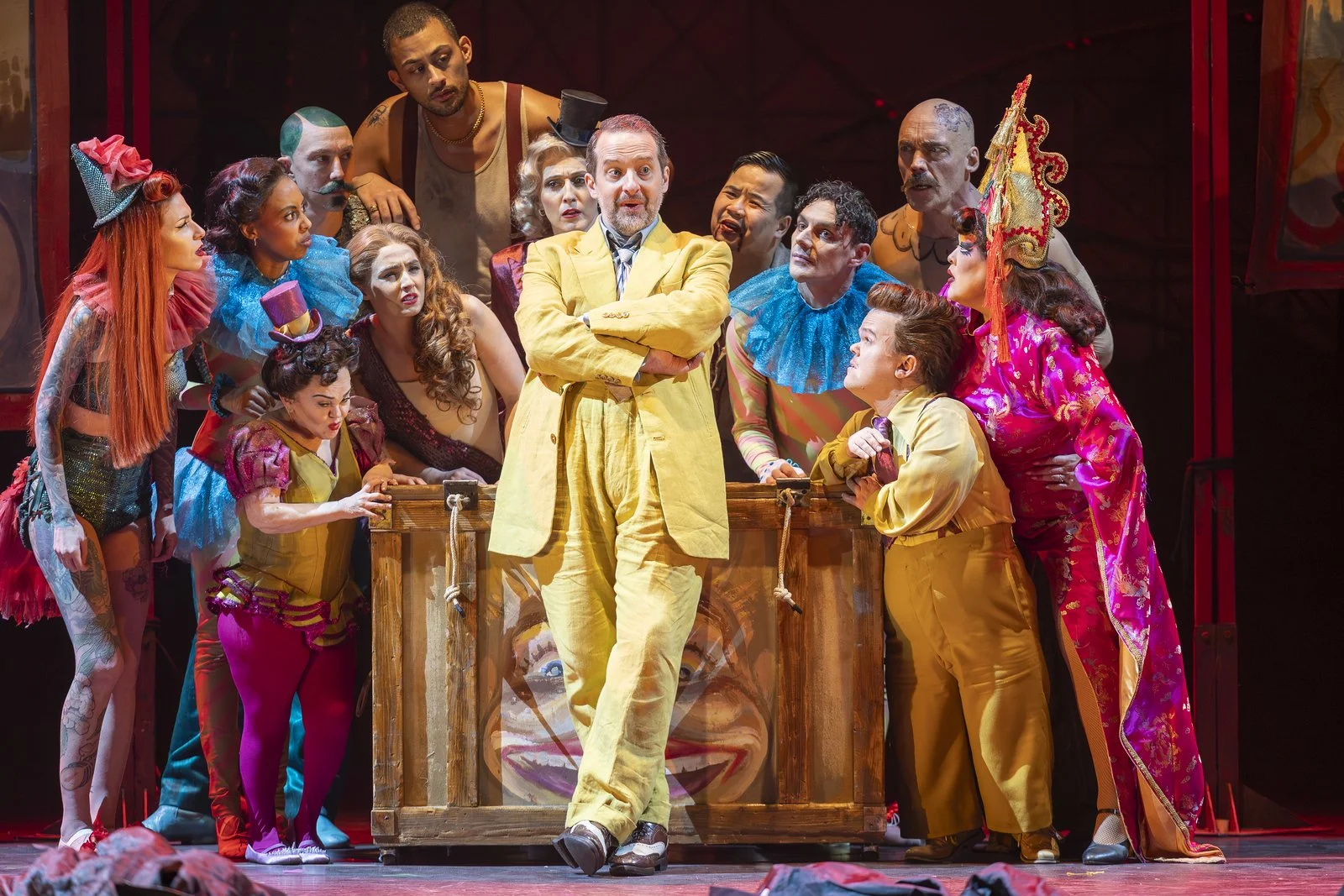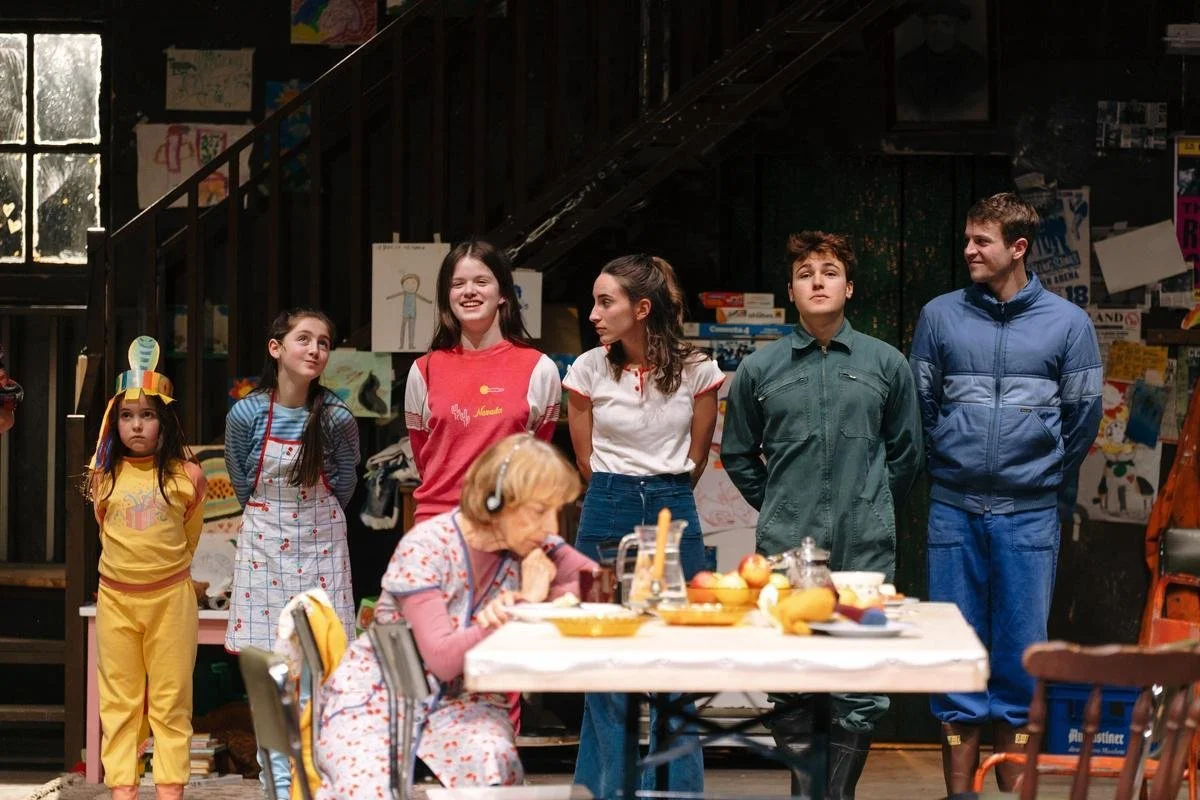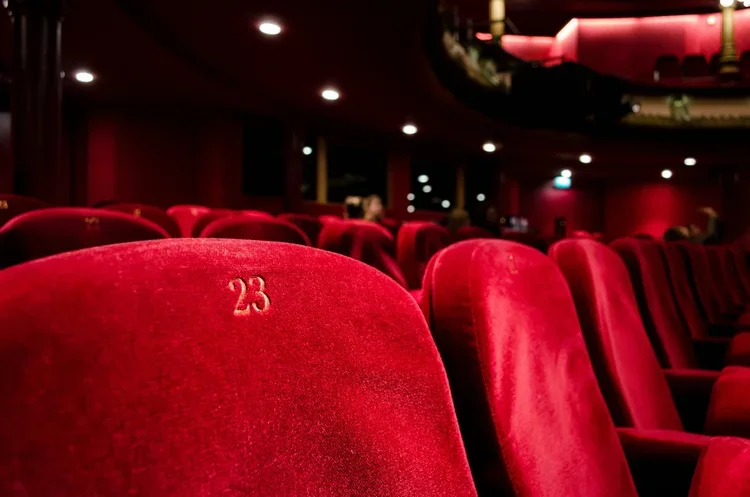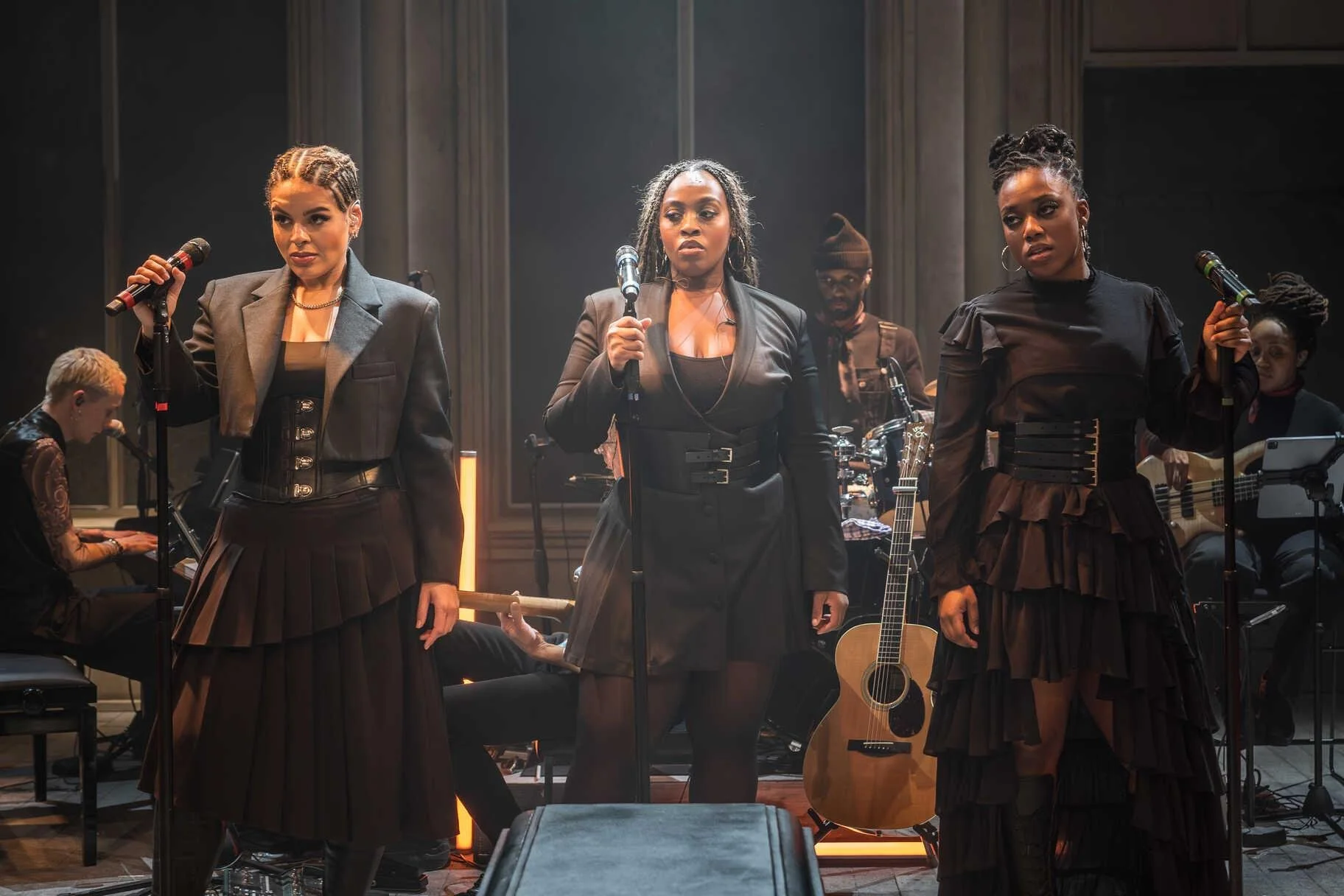Not A Word, Bru Theatre Review
Written by Danai for Theatre and Tonic
Disclaimer: Gifted tickets in exchange for an honest review
Not a Word by Brú Theatre is a performance that abandons conventional dialogue yet speaks profoundly through other means. With Raymond Keane's masterful use of physicality and body movement as a primary mode of storytelling, complemented by Ultan O’Brien’s haunting fiddle playing, the production invites the audience to feel absorbed by a narrative of sound, image, and emotion.
At its heart, Not a Word portrays the life of a 19th-century Irish navvy who emigrated to the UK. Exhausted after a day’s labour, the protagonist, unable to resign himself to sleep, turns to simple tasks—reading, playing cards, and, most meaningfully, listening to music. The three vinyl records he plays become the three stages of his decision to leave: whether to return to Ireland or to venture elsewhere remains ambiguous, allowing the audience to focus on his inner struggle and yearning for something beyond his current existence.
A striking feature of the production is the protagonist's mud-like mask, covering his entire head. Made by Orla Clogher, this mask becomes his identity as a navvy—an identity that consumes him, rendering him unseen and faceless in a world that benefits from his toil yet relegates him to obscurity. The absence of spoken words, combined with the mask and other elements of physical theatre, underscores the isolation and cyclical struggles of the working class.
The set design of Andrew Clancy enhances the narrative beautifully. The dirty record player serves as a focal point, while other elements, such as a cupboard that transforms to reveal grass, hint at the protagonist’s longing for the outside world—or perhaps the homeland he left behind. These subtle details blend seamlessly with Ultan O’Brien’s evocative music, which engages in a dialogue with Keane’s movements rather than merely accompanying them.
Powerful moments punctuate the performance: the involuntary dance as the body remembers its joys and country of origin, the masked gaze into the mirror reflecting a life shaped by labour, and the futile attempts to present oneself as "ready" to leave. The protagonist's struggle to prepare—cleaning himself, donning a suit, finding an alternative to his worn shoes and finally wearing his working boots which he sloppily cleans. His working boots though, carry a heavier burden than he has imagined, and his body resists the act of leaving, as though the life he knows has tethered him too tightly.
The climax of the performance, where the protagonist removes his mask to reveal his face for the first time, is transformative. Accompanied by a shift in lighting, music, and an Irish poem heard in the background, the moment offers a poignant conclusion that resonates deeply. Not a Word demonstrates the boundless potential of physical theatre to convey meaning beyond language, proving that sometimes, listening requires more than ears. James Riordan directs beautifully this story from the past. A story about a day that looks mundane but represents so many more such days by so many more people who have remained invisible and unheard as if they never said not (even) a word.
★★★★


